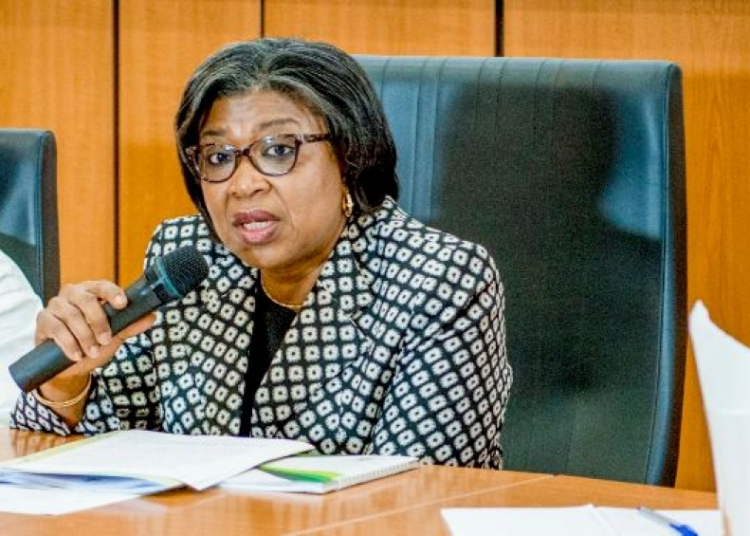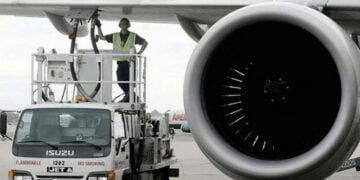With Nigeria’s debt profile now at N49.85 trillion at the end of the first quarter of 2023, according to latest data by the Debt Management Office (DMO), analysts say they expect the country’s obligations to rise above N89 trillion by the end of the year.
The latest public debt profile released by the DMO showed that as of March 31, 2023, the total public debt stock comprising the external and domestic debts of the federal government of Nigeria (FGN), the 36 States, and the Federal Capital Territory (FCT) stood at N49.85 trillion.
This is an increase of N3.60 trillion compared to N46.25 trillion recorded at the end of December 2022. The debt office noted that March figure did not include the FGN’s N22.719 trillion Ways and Means Advances of the Central Bank of Nigeria(CBN) whose securitisation was approved by the National Assembly(NASS) in May 2023.
In January 2023, then-President Muhammadu Buhari asked the Senate to securitise the N22.7 trillion Ways and Means loan. The increase in the nation’s debt profile primarily reflects new borrowings to fund the 2023estimated budget deficit, given higher expenditure relative to the rise in revenue.
However the DMO had noted that the CBN’s Ways & Means Advances would be included in the 2023 second quarter debt data since the FG received the National Assembly’s approval to securitise it in May 2023.
Thus, analysts at Cordros Research say, they expect the public debt profile to settle at an estimated N89.11 trillion or 42.4 per cent of Gross Domestic Product (GDP) in 2023 compared to 2022 figure of N46.25 trillion which was 23.2 per cent of GDP.
“Our expectation is hinged on the securitisation of the CBN’s Ways & Means Advances, new borrowings to fund the 2023 deficit, and impact of foreign exchange liberalisation on the naira value of external debt. Notably, we expect the local currency depreciation to add N11.32 trillion to the public debt outstanding in 2023 financial year.”
The DMO had earlier warned the federal government against additional borrowing, saying 73.5 per cent of revenue generated this year will be used to service debt. According to the DMO, the projected FGN Debt Service to Revenue ratio of 73.5 per cent for 2023 is high and cannot support higher levels of borrowing, and is also a threat to debt sustainability.
Some believe that Nigeria continues to linger close to the borders of a debt crisis as analysts at Financial Derivatives Company Limited note that Nigeria’s debt seems to have peaked to a point of Ponzi finance scheme.
Sovereign Ponzi finance refers to a situation where a government engages in a Ponzi scheme-like behaviour by issuing debt to pay for current expenses with the expectation of rolling over that debt with new debt in the future, rather than generating sufficient revenue or cutting expenses to repay the debt.
This leads to a situation where the government’s debt burden grows unchecked, eventually becoming unsustainable. Countries like Sri Lanka, Zambia, Lebanon, Ghana, Pakistan, Tunisia, Egypt, Malawi, and El Salvador that have either defaulted or are at risk of defaulting are guilty of running a sovereign Ponzi scheme.
In a sovereign Ponzi scheme, the government sells bonds to investors, promising to pay interest and principal on those bonds in the future. However, instead of using the money from the bond sales to invest in infrastructure or other productive assets that can generate future revenue, the government uses the funds to finance recurrent expenditures, such as salaries, pensions, and subsidies.
To pay off the bonds when they mature, the government issues new ones and uses the proceeds to repay the old ones. This creates a cycle in which the government is constantly issuing new debt to pay off old debt without generating sufficient revenue to repay the debt entirely, resulting in a debt trap where the government’s debt burden grows larger and larger, eventually becoming unsustainable.
Last year, Nigeria spent most of its revenue on servicing its debt. According to FDC analysts, there is no doubt that Nigeria is on the cusp of a debt crisis. “In 2022, the FGN spent N96 out of every N100 it got as revenue. The fiscal sustainability scores are red for the sub-nationals and FGN. More so, interest rates will remain elevated globally in 2023, and this implies that the debt service burden will heighten further, capping the available fiscal headroom. With dwindling revenue amid maturing debt obligations, there is no doubt that the choices are hard and the options are few,” they said.
“While the debt-to-GDP ratio is still below the self-imposed benchmark of 45 per cent, the inability to invest borrowed funds in productive projects has weakened the nation’s ability to repay its debt. A high debt service-to revenue ratio, rather than debt-to-GDP, is a good indicator of economies that are caught up in the doldrums of Ponzi finance.
The analysts called for caution as most countries that put their hands into Ponzi finance got burned. “Most countries that, intentionally or inadvertently, went into Ponzi finance became the true example of the saying that ‘he who goes a-borrowing also goes a-sorrowing’.
“A classical case was Sri Lanka. Sri Lanka defaulted on its international debt for the first time in its modern history last year, after raising its debt stock by 240 per cent to $85.8 billion from $21.2 billion a decade ago.
“Similarly, Lebanon had its first loan default in 2020 after accumulating a debt stock exceeding 170 per cent of its GDP. Its sovereign debt doubled to $9.6 billion in 2020 from $4.7 billion in 2010, while its revenue plummeted to 16 per cent of GDP from 22 per cent of GDP a decade ago.
In all cases, the countries in debt distress had borrowed massively to finance recurrent spending, including repayment of maturing debt obligations.
“One thing that is certain about a Ponzi scheme is that it will collapse someday. When debt is mismanaged, resulting in a debt overhang and eventual sovereign default, one of the first effects is a credit downgrade by rating agencies.
“This, in turn, will trigger capital flow reversals and asset selloffs, leading to a financial and currency crisis, as well as hyperinflation. For instance, inflation rose to 189.67 and 50.3 per cent in Lebanon and Sri Lanka, respectively. In Zambia, the Kwacha (Zambia’s local currency) depreciated by 14% a year ago. Sadly, Nigeria is already on this path,” they pointed out.





